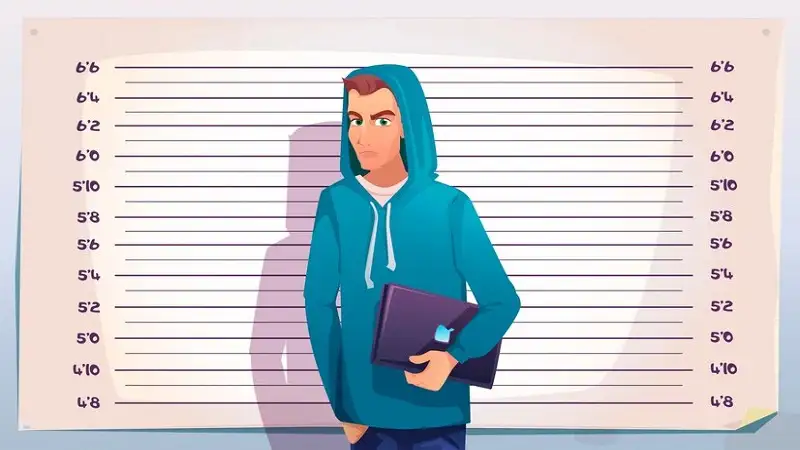Kankakee Mugshot Zone is a term that refers to online platforms and databases that collect and publish mugshots of individuals arrested in Kankakee County, Illinois. These platforms serve as a source of public information, offering insights into recent arrests, criminal charges, and law enforcement activities. While these sites aim to provide transparency, they also raise ethical and legal concerns regarding privacy, reputation, and the right to be forgotten.
Understanding Mugshots and Their Purpose
A mugshot is a photographic record taken by law enforcement agencies upon an individual’s arrest. It typically consists of two images: a front-facing shot and a side profile. The purpose of a mugshot is to:
- Assist in identifying suspects
- Maintain records for legal and investigative purposes
- Provide transparency in law enforcement activities
- Help victims and witnesses recognize suspects
Kankakee County: An Overview
Kankakee County is located in northeastern Illinois and has a population of around 100,000 residents. The county is home to the city of Kankakee, which serves as its administrative center. The local law enforcement agencies, including the Kankakee County Sheriff’s Office and the Kankakee Police Department, are responsible for maintaining public safety and enforcing the law. Crime rates in the area fluctuate, making the Kankakee Mugshot Zone a frequently accessed resource for the community.
How Kankakee Mugshot Zone Websites Work
Mugshot zone websites collect data from law enforcement agencies and publish arrest records online. These platforms may be operated by private entities or government agencies. Key features of these websites include:
- Searchable databases by name, date, or crime category
- Details of arrested individuals, including name, age, charges, and booking date
- Public accessibility to mugshots and related information
- Potential removal policies for those who seek to have their records deleted
Legal Aspects of Mugshots and Public Records
Mugshots are considered public records under the Freedom of Information Act (FOIA) in many states, including Illinois. This means that law enforcement agencies are obligated to release arrest information to the public upon request. However, legal issues arise when private websites republish these records for profit. Some states have enacted laws to regulate the use of mugshots, especially regarding the practice of charging individuals to remove their images.
Key Legal Concerns:
- Privacy Issues: Once a mugshot is published online, it becomes difficult to remove, even if the charges are dropped or the person is acquitted.
- Extortion Allegations: Some mugshot websites demand payment for the removal of images, leading to ethical and legal debates.
- Defamation Risks: Individuals may suffer reputational damage from publicly accessible arrest records, regardless of their guilt or innocence.
The Ethics of Publishing Mugshots
While mugshots provide transparency, their publication raises ethical concerns. Critics argue that:
- Public shaming through online mugshots can have long-term consequences on employment and social life.
- People are presumed innocent until proven guilty, yet mugshot websites create a bias against arrested individuals.
- The removal process is often costly and inaccessible to lower-income individuals.
Supporters of mugshot publication argue that:
- Public records should remain accessible to ensure transparency.
- The information helps communities stay informed about crime in their area.
- Law enforcement agencies use mugshot databases for investigations and suspect identification.
How to Remove a Mugshot from Kankakee Mugshot Zone Platforms
For individuals seeking to have their mugshots removed, there are several options:
- Legal Expungement: If a case is dismissed or an arrest record is sealed, individuals can request the removal of their mugshot from official databases.
- Direct Requests: Some websites allow people to request removal for free or for a fee.
- Legislation and Legal Action: Some states have passed laws prohibiting the monetization of mugshots, and legal action can be taken against websites engaging in exploitative practices.
The Role of Law Enforcement in Mugshot Publications
Law enforcement agencies play a crucial role in the release of arrest records. In Kankakee County, the sheriff’s office and police department maintain databases of arrest records, which are accessible through official websites and public request systems. However, these agencies do not control third-party websites that republish mugshots.
Possible Law Enforcement Actions:
- Restricting public access to mugshots for non-violent offenses
- Offering clear guidelines on mugshot usage
- Working with legislators to curb exploitative practices
Public Opinion on Kankakee Mugshot Zone Databases
Public sentiment on Kankakee Mugshot Zone websites is divided. Many people believe in the right to access public records, while others feel that mugshot databases are exploitative. The debate centers around balancing transparency with privacy rights.
Arguments for Public Access:
- Helps inform the community about criminal activity
- Assists law enforcement in investigations
- Ensures transparency in the justice system
Arguments Against Public Access:
- Can ruin lives by damaging reputations
- Some individuals are arrested but never convicted
- Leads to financial exploitation by websites charging for removals
The Future of Kankakee Mugshot Zone and Public Records
The future of Kankakee Mugshot Zone websites remains uncertain as legal and ethical debates continue. With increasing privacy concerns and legislative efforts, there may be stricter regulations on how mugshots are published and used. Some potential future developments include:
- Stronger privacy laws to limit mugshot publication
- AI and automation to detect and remove outdated or misleading records
- Increased public awareness about mugshot rights and legal remedies
Conclusion
Kankakee Mugshot Zone represents a broader issue regarding public records, privacy, and digital ethics. While access to arrest records serves important public interests, the misuse of mugshot databases raises serious concerns. Legal reforms, ethical considerations, and awareness campaigns will play a crucial role in shaping the future of public record accessibility. Whether you support or oppose these databases, understanding their impact is essential for informed discussions on privacy and justice in the digital age.

